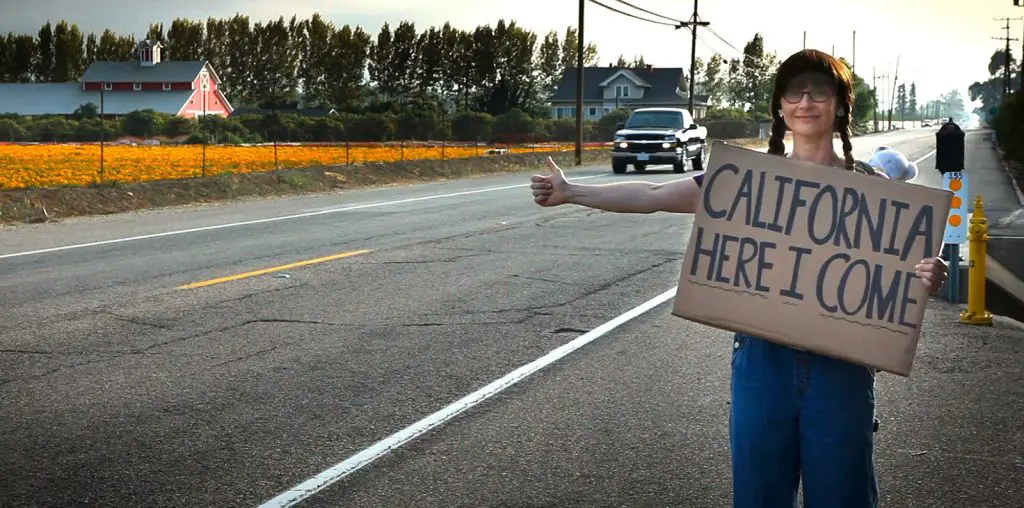
From the opening sequence in which Dr. Harvey casually and directly addresses the audience, the relatively little-seen Four Sided Triangle reveals itself as somewhat of an unusual little picture. This science fiction/romance’s title refers to the love triangle between childhood friends: two boys – the affluent Robin and the poor genius Bill, their sweetheart, Lena, and eventually her double, Helen. You see, the two boys grew up to be scientists, and the girl grew up to be a failure, eventually returning home to reunite with her chums and become their assistant. And what wild contraption are the boys working on? Well, a machine which can duplicate anything, of course.
Thank God their mentor, Dr. Harvey, waves off their attempted explanation of how the thing works. It turns out both Romeos are in love with the one Juliet, but Robin, the rich, outgoing one, proposes first. Lena accepts, and Bill is crushed. Equally obsessed with Lena and science, he decides to put her in the “Replicator”. Racked with guilt, flattered, and fragile, she surprisingly agrees to the experiment. It works, but alas, the new Lena, whom Bill names Helen, is too perfect of a copy. Helen, too, loves Robin. Lena helps Bill with an experiment in electro-shock therapy which everyone hopes will erase all of Helen’s memories to make her a clean slate with which Bill can create his new version of Lena. But the equipment blows up after the experiment, burning down the laboratory, destroying the Replicator, and killing Bill and one of the girls, but which one? I won’t totally ruin it for you.
Four Sided Triangle is an inexpensive picture, but it retains an interesting perverseness, and an almost touching tragic romanticism. There are perhaps shades of Alraune (the third remake of which had been released the previous year), and the themes, characters, décor, and finale anticipate The Fly (1958), the Fisher/Carreras Curse of Frankenstein, and, to a lesser degree, even Hitchcock’s Vertigo (1958). The story is infused with interesting themes of the loss of identity and individualism in modern society and the lines which blur between reason/intellect and obsession/emotion. Bill is a strange, tragic character; a man who’s advanced intelligence and bad upbringing breeds a psyche which has no moral dilemma with cloning a human being for the sole purpose of be loved by the one he wishes to love him. Somehow, in his selfless act of creating a device to further the lives of people of the world, he ultimately uses it for the most selfish of purposes. He reduces himself from a great thinker to a scorned little boy who simply wants his way.
As Bill, Steven Murray is compelling, but a little blank and slightly dry, looking like a half-melted wax sculpture of Liam Neeson. Barbara Payton, who plays Lena and Helen, is pretty but somewhat ineffectual. In fact, she is perhaps at her best when unconscious in the laboratory. John Van Eyssen is solid as the dashing but dull Robin. James Hayter makes for an effective if permissive voice of reason as Dr. Harvey.
The picture comes complete with none-too-subtle messages (appropriate, if heavy-handed), from the Biblical “God hath made man upright, but they have sought out many inventions”, to the philosophical “Life is neither a feast nor a spectacle, but a predicament”, to Emerson’s “You shall have joy or you shall have power, said God, you shall not have both”. Amen, brother.
While Four Sided Triangle is an interesting and unusual picture with positively creepy implications, it is a shame the budget didn’t allow for more action, or for some of the themes and ramifications to be more deeply probed. The work suffers from over-talky scenes and a static staginess. Watching it leaves one wishing they had gone further, faster. Four Sided Triangle is a little British oddity worth measuring.

